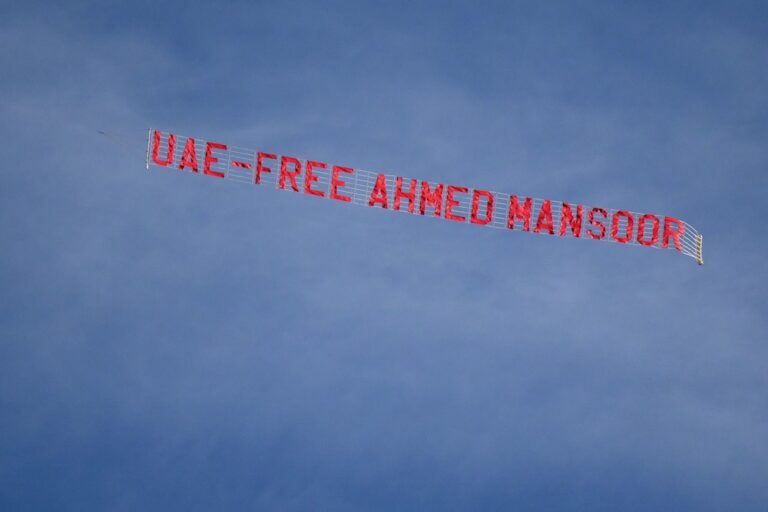Muawiyah Alrawahi, who has criticized Omani authorities on his blog and YouTube channel, has long been persecuted for his work.
This statement was originally published on cpj.org on 26 March 2015.
The Committee to Protect Journalists is concerned about the welfare of Omani blogger Muawiyah Alrawahi, who was detained while attempting to enter the United Arab Emirates by car from Oman. Alrawahi, who has criticized Omani authorities on his blog and YouTube channel, has long been persecuted for his work, according to news reports and local and international human rights groups.
On February 24, Alrawahi called Mohammad al-Fazari, an Omani human rights activist, and said he had not been allowed to enter the United Arab Emirates and that UAE border security had seized his travel documents, according to the human rights group Amnesty International. The blogger was detained after driving up to a checkpoint between Oman and the UAE, local and international human rights groups said.
On March 3, Mohamed al-Rayami, head of the semi-official Omani National Council for Human Rights, said there was no official information about Alrawahi and that the Omani foreign minister would inquire with the UAE government about his case, the local news website Albalad reported.
CPJ’s phone calls and emails to the UAE embassy in Washington inquiring about Alrawahi’s detention were not immediately returned. CPJ’s email to the Omani embassy in Washington was also not immediately returned.
“Muawiyah Alrawahi has not been heard from in a month, and this is alarming given the record of official persecution of the critical blogger,” said Sherif Mansour, CPJ’s Middle East and North Africa Coordinator. “We call on authorities in the United Arab Emirates to explain why Alrawahi has been taken into custody or release him immediately.”
Nabhan Salim, manager of the independent organization Monitor of Human Rights in Oman, told CPJ that Alrawahi could have been targeted because of tweets he posted in mid-2013 that criticized the UAE ruling family. Since January 2014, there has been a security arrangement that allows authorities in Oman and the UAE to collaborate, he said.
Alrawahi is known for using his blog and YouTube channel to discuss atheism and raise other sensitive topics, including criticism of Omani Sultan Qaboos. In July 2014, Alrawahi published a post that criticized Omani authorities for detaining teachers and activists protesting the conviction of one teacher who was accused of participating in an October 2013 strike. The blogger later disappeared after being summoned by intelligence officials, according to human rights groups. A photo appeared on Twitter weeks later that showed the blogger at the psychiatric department of Sultan Qaboos University Hospital, with his legs shackled, according to the London-based Monitor of Human Rights in Oman. He was released on August 11.
Alrawahi was also arrested in February 2012 after publishing a blog post titled “Yes, I’m out,” in which he expressed his distrust of Omani authorities, according to Global Voices Advocacy and the Arabic Network for Human Rights Information.
In November 2014, a post on the blogger’s Facebook page said he was quitting blogging and would write only novels and poems. Alrawahi later told another blogger that he had lost hope that blogging could “make a difference.”


